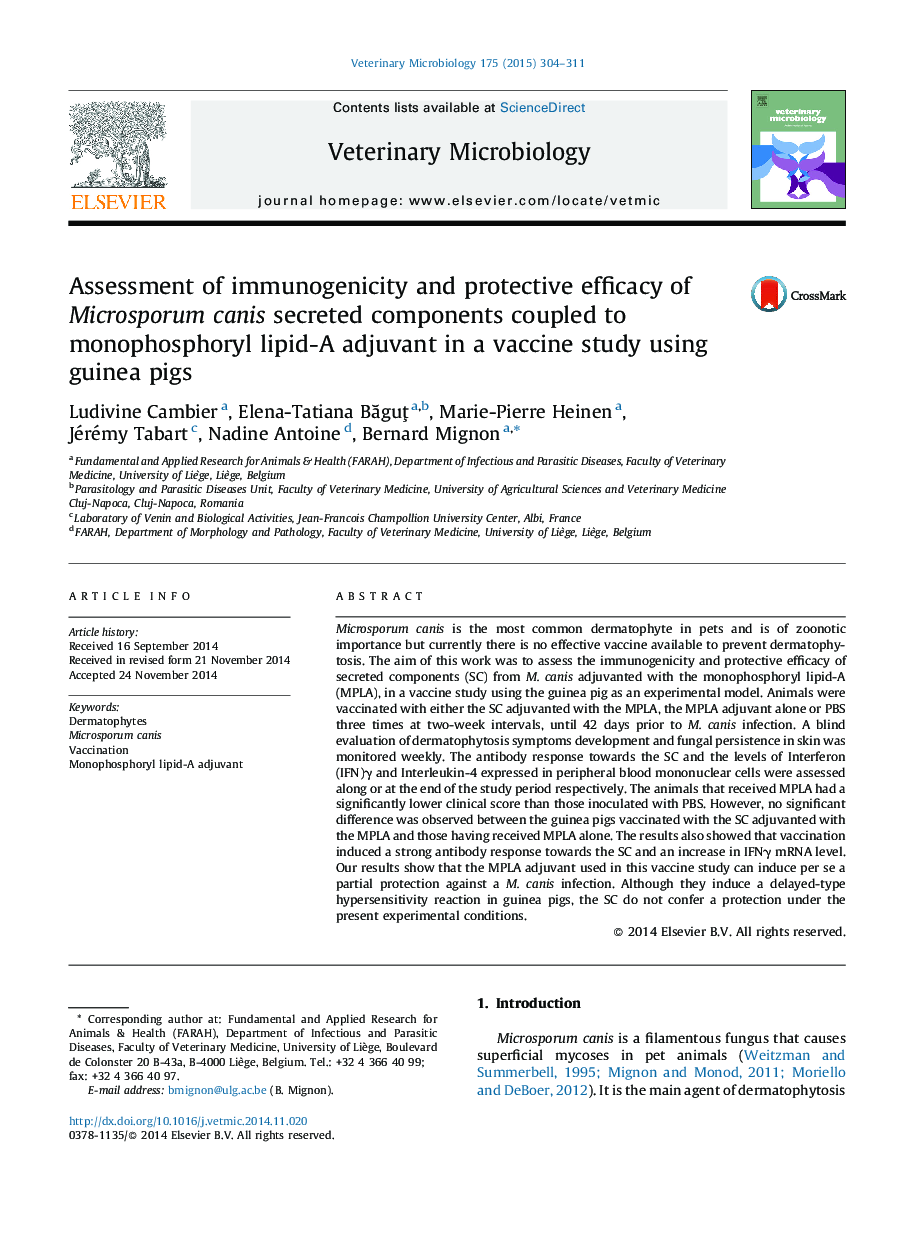| کد مقاله | کد نشریه | سال انتشار | مقاله انگلیسی | نسخه تمام متن |
|---|---|---|---|---|
| 5800065 | 1555354 | 2015 | 8 صفحه PDF | دانلود رایگان |

- No vaccine is available for pets to control dermatophytosis.
- We perform a vaccine trial against Microsporum canis in guinea pigs.
- Secreted components used as antigens are not protective in our experimental study.
- Monophosphoryl lipid-A adjuvant induces a partial protection against infection.
Microsporum canis is the most common dermatophyte in pets and is of zoonotic importance but currently there is no effective vaccine available to prevent dermatophytosis. The aim of this work was to assess the immunogenicity and protective efficacy of secreted components (SC) from M. canis adjuvanted with the monophosphoryl lipid-A (MPLA), in a vaccine study using the guinea pig as an experimental model. Animals were vaccinated with either the SC adjuvanted with the MPLA, the MPLA adjuvant alone or PBS three times at two-week intervals, until 42 days prior to M. canis infection. A blind evaluation of dermatophytosis symptoms development and fungal persistence in skin was monitored weekly. The antibody response towards the SC and the levels of Interferon (IFN)γ and Interleukin-4 expressed in peripheral blood mononuclear cells were assessed along or at the end of the study period respectively. The animals that received MPLA had a significantly lower clinical score than those inoculated with PBS. However, no significant difference was observed between the guinea pigs vaccinated with the SC adjuvanted with the MPLA and those having received MPLA alone. The results also showed that vaccination induced a strong antibody response towards the SC and an increase in IFNγ mRNA level. Our results show that the MPLA adjuvant used in this vaccine study can induce per se a partial protection against a M. canis infection. Although they induce a delayed-type hypersensitivity reaction in guinea pigs, the SC do not confer a protection under the present experimental conditions.
Journal: Veterinary Microbiology - Volume 175, Issues 2â4, 25 February 2015, Pages 304-311